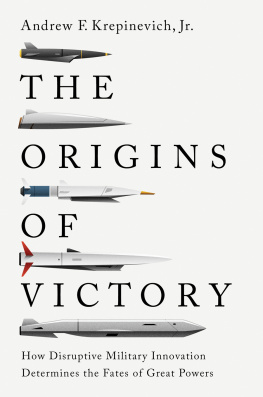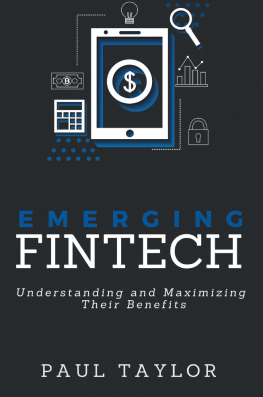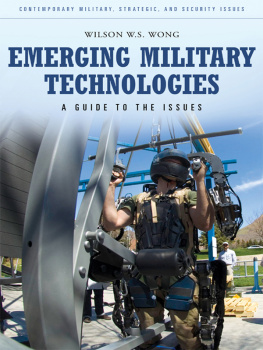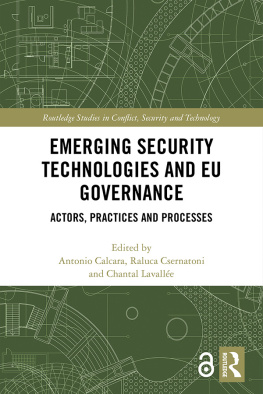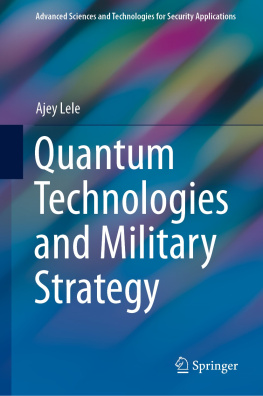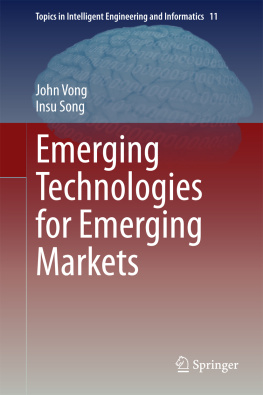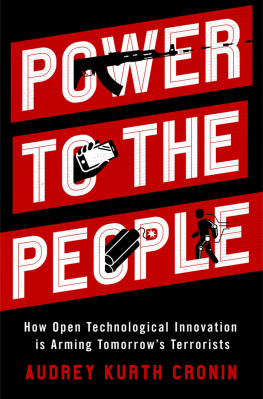
Defence Innovation and the 4th Industrial Revolution
This book examines the implications of disruptive technologies of the Fourth Industrial Revolution (4IR) on military innovation and the use of force. It provides an in-depth understanding of how both large and small militaries are seeking to leverage 4IR emerging technologies and the effects such technologies may have on future conflicts.
The 4th Industrial Revolution (4IR), the confluence of disruptive changes brought by emerging technologies such as artificial intelligence, robotics, nanotechnologies, and autonomous systems, has a profound impact on the direction and character of military innovation and use of force. The core themes in this edited volume reflect on the position of emerging technologies in the context of previous Revolutions in Military Affairs; compare how large resource-rich states (US, China, Russia) and small resource-limited states (Israel, Sweden, Norway) are adopting and integrating novel technologies and explore the difference between various innovation and adaptation models. The book also examines the operational implications of emerging technologies in potential flashpoints such as the South China Sea and the Baltic Sea.
Written by a group of international scholars, this book uncovers the varying 4IR defence innovation trajectories, enablers, and constraints in pursuing military-technological advantages that will shape the character of future conflicts.
The chapters in this book were originally published as a special issue of the Journal of Strategic Studies.
Michael Raska is Assistant Professor and Coordinator of the Military Transformations Programme at the S. Rajaratnam School of International Studies, Nanyang Technological University in Singapore. His research and teaching focus on theoretical and policy-oriented aspects of military innovation, emerging technologies, and East Asian security and defence.
Katarzyna Zysk is Professor of International Relations and Contemporary History at the Norwegian Institute for Defence Studies in Oslo, which is a part of the Norwegian Defence University College in Oslo, Norway. Her research focuses on security, defence, and strategic studies, including Russias military strategy and warfare, maritime security and geopolitics in the Arctic, military change, and defence innovation.
Ian Bowers is Associate Professor at the Centre for Joint Operations at the Royal Danish Defence College in Copenhagen. His research focuses on the implications of multi-domain operations for small states, the application of seapower, deterrence, and East Asian security.
Defence Innovation and the 4th Industrial Revolution
Security Challenges, Emerging Technologies, and Military Implications
Edited by
Michael Raska, Katarzyna Zysk and
Ian Bowers
First published 2022
by Routledge
4 Park Square, Milton Park, Abingdon, Oxon OX14 4RN
and by Routledge
605 Third Avenue, New York, NY 10158
Routledge is an imprint of the Taylor & Francis Group, an informa business
Introduction, Chapters 13 and 57 2022 Taylor & Francis
Chapter 4 2020 Katarzyna Zysk. Originally published as Open Access.
With the exception of Chapter 4, no part of this book may be reprinted or reproduced or utilised in any form or by any electronic, mechanical, or other means, now known or hereafter invented, including photocopying and recording, or in any information storage or retrieval system, without permission in writing from the publishers. For details on the rights for Chapter 4, please see the chapters Open Access footnote.
Trademark notice: Product or corporate names may be trademarks or registered trademarks, and are used only for identification and explanation without intent to infringe.
British Library Cataloguing in Publication Data
A catalogue record for this book is available from the British Library
ISBN: 978-1-032-21398-9 (hbk)
ISBN: 978-1-032-21399-6 (pbk)
ISBN: 978-1-003-26821-5 (ebk)
DOI: 10.4324/9781003268215
Typeset in Myriad Pro
by Newgen Publishing UK
Publishers Note
The publisher accepts responsibility for any inconsistencies that may have arisen during the conversion of this book from journal articles to book chapters, namely the inclusion of journal terminology.
Disclaimer
Every effort has been made to contact copyright holders for their permission to reprint material in this book. The publishers would be grateful to hear from any copyright holder who is not here acknowledged and will undertake to rectify any errors or omissions in future editions of this book.
Contents
Michael Raska, Katarzyna Zysk, Ian Bowers and Richard A. Bitzinger
Michael Raska
Zoe Stanley-Lockman
Elsa B. Kania
Katarzyna Zysk
Yoram Evron
Magnus Petersson
Ian Bowers and Sarah Kirchberger
Citation Information
The chapters in this book were originally published in the Journal of Strategic Studies, volume 44, issue 4 (2021). When citing this material, please use the original page numbering for each article, as follows:
Introduction
Michael Raska, Katarzyna Zysk, Ian Bowers and Richard A. Bitzinger
Journal of Strategic Studies, volume 44, issue 4 (2021), pp. 451455
The sixth RMA wave: Disruption in Military Affairs?
Michael Raska
Journal of Strategic Studies, volume 44, issue 4 (2021), pp. 456479
From closed to open systems: How the US military services pursue innovation
Zoe Stanley-Lockman
Journal of Strategic Studies, volume 44, issue 4 (2021), pp. 480514
Artificial intelligence in Chinas revolution in military affairs
Elsa B. Kania
Journal of Strategic Studies, volume 44, issue 4 (2021), pp. 515542
Defence innovation and the 4th industrial revolution in Russia
Katarzyna Zysk
Journal of Strategic Studies, volume 44, issue 4 (2021), pp. 543571
4IR technologies in the Israel Defence Forces: blurring traditional boundaries
Yoram Evron
Journal of Strategic Studies, volume 44, issue 4 (2021), pp. 572593
Small states and autonomous systems - the Scandinavian case
Magnus Petersson
Journal of Strategic Studies, volume 44, issue 4 (2021), pp. 594612
Not so disruptive after all: The 4IR, navies and the search for sea control
Ian Bowers and Sarah Kirchberger
Journal of Strategic Studies, volume 44, issue 4 (2021), pp. 613636
For any permission-related enquiries please visit:
www.tandfonline.com/page/help/permissions
Notes on Contributors
Richard A. Bitzinger is Senior Visiting Fellow with the Military Transformations Programme at the S. Rajaratnam School of International Studies (RSIS), Nanyang Technological University, where his work focuses on security and defence issues relating to the Asia-Pacific region, including military modernisation and force transformation, regional defence industries and local armaments production, and weapons proliferation. Formerly with the RAND Corp. and the Defence Budget Project, he has been writing on Asian aerospace and defence issues for more than 20 years. His articles have appeared in such journals as


